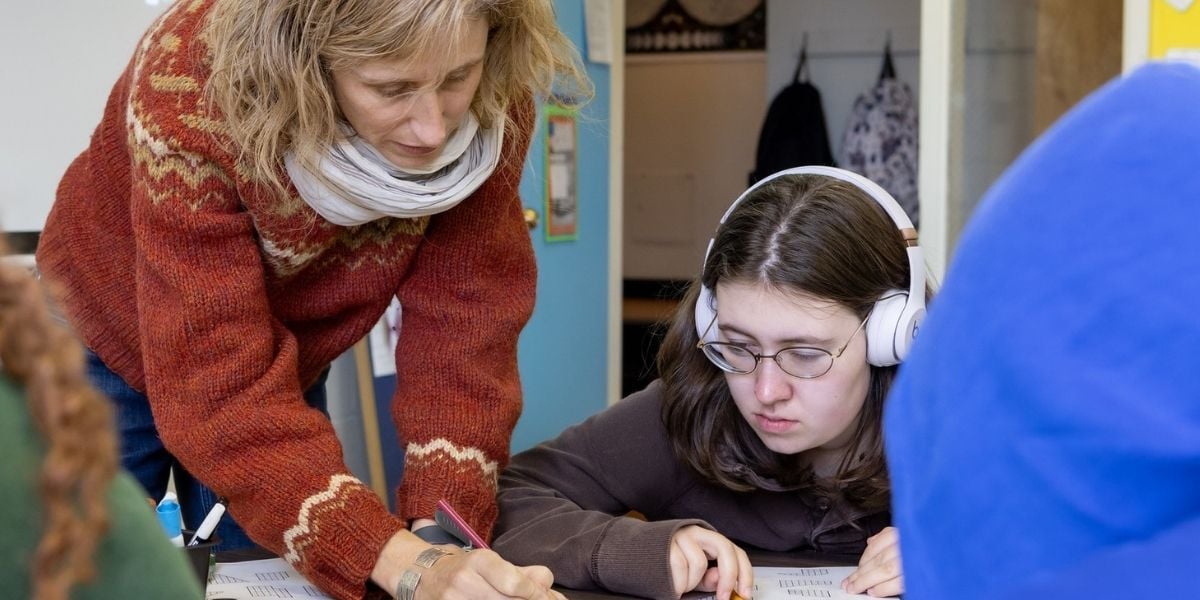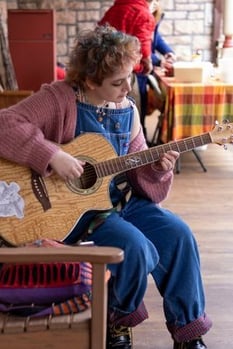How Friction Fosters Connection and Builds Community
In an age where “frictionless” conveniences like instant deliveries and AI interactions promise to make life smoother and easier, a lesser-known cost...

If you’re the parent of a bright but sometimes anxious, quirky teen, you know the typical academic path doesn’t always fit. You may have watched your child wrestle with pressure—from rigorous coursework, from peers, from social media, from within—and wondered: Is this what success is supposed to look like?
As an educator and school administrator, I’ve worked with high school students for decades. One thing I know for certain: The teens who grow into resilient, capable young adults aren’t just those who excel in AP classes or ace standardized tests. They’re the ones whose environment made space for both academic growth and emotional development.
Here’s why that balance matters—and what it can look like in practice.
 Why Academic Achievement Isn’t the Whole Story
Why Academic Achievement Isn’t the Whole StoryWe’re conditioned to believe that GPA, SAT scores, and college acceptance letters are the clearest signs of future success. But for many teens—especially those who are sensitive, creative, or who learn differently—these markers don’t tell the whole story.
When students are overwhelmed by pressure, battling anxiety, or masking their struggles just to get through the day, academic performance often suffers. Even more importantly, their confidence and joy in learning can erode.
Neuroscience tells us that stress and emotional dysregulation impair the brain’s ability to retain and apply information. In other words, without emotional stability, learning is harder. Research from the Collaborative for Academic, Social, and Emotional Learning (CASEL) shows that students who receive structured support in areas like self-awareness and stress management perform better academically—and are better equipped to handle life outside the classroom.
Social-emotional learning, or SEL, is not about “coddling” students or lowering expectations. It’s about helping teens build the tools they need to manage life’s inevitable ups and downs—at school, in relationships, and beyond.
At its core, SEL teaches skills such as:
 For teens who feel different or misunderstood, SEL offers language and tools that help them see themselves not as “too sensitive” or “too much,” but as people with strengths worth developing.
For teens who feel different or misunderstood, SEL offers language and tools that help them see themselves not as “too sensitive” or “too much,” but as people with strengths worth developing.
Imagine your teen feeling overwhelmed before a test—but instead of panicking, they pause, breathe, and use a strategy they’ve practiced to stay grounded.
Or picture them working through a group project with classmates who have different ideas—and instead of withdrawing or snapping, they find ways to lead with empathy and keep the group on track.
Or writing a college application essay, confronting big questions about identity and the future, and approaching that process with self-acceptance and clarity.
This is the power of integrating emotional learning with academics: students become more than high achievers—they become thoughtful, adaptable humans.
If your teen is struggling to thrive in a traditional setting, it may not be because they can’t handle the work—but because they need more support learning how to handle the pressures that come with it.
Here are five things to look for in schools that take both sides of the equation seriously:
Insight: Why “Both/And” Thinking Matters
As parents, we’re often pushed to think in “either/or” terms:
But real life isn’t that simple—and neither is parenting.
“Both/and” thinking invites us to hold complexity and embrace nuance. It allows us to say:
This shift in perspective may not simplify the choices, but it brings greater honesty—and compassion—to how we make them.
Want to learn more?At Rock Point School, we believe that emotional support isn’t a sideline service—it’s central to helping each student flourish in their own way. Whether a student is academically gifted but anxious, socially curious but overwhelmed, or simply doesn’t thrive in conventional systems, they deserve an education that honors all of who they are.

As parents, we want our teens to leave high school prepared—not just for college or a career, but for a meaningful life. That means learning to navigate disappointment, build healthy relationships, think critically, and understand themselves.
Straight A’s and test scores may open doors, but they won’t carry your child through every challenge they’ll face. The ability to connect, adapt, reflect, and lead—that’s what truly prepares them for what comes next.
At the end of the day, it’s not only about what your teen does in high school. It’s about who they become.

In an age where “frictionless” conveniences like instant deliveries and AI interactions promise to make life smoother and easier, a lesser-known cost...

As we are heading into our vacation, I am thinking about a student at Rock Point from many years ago who really struggled to get back into the school...

Every quarter, students choose from several electives, which meet three times a week to supplement the curriculum and provide a fun way to start...